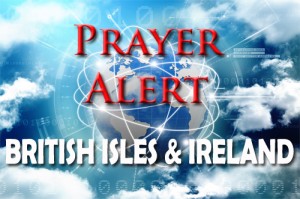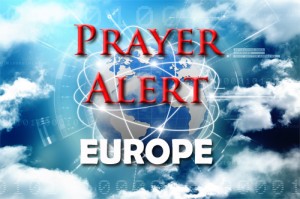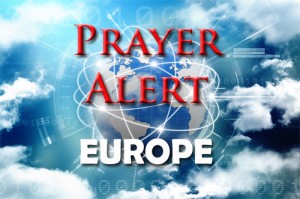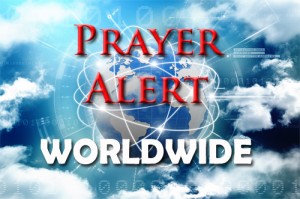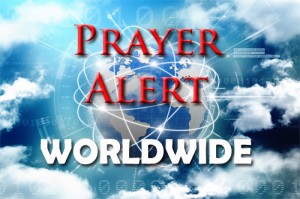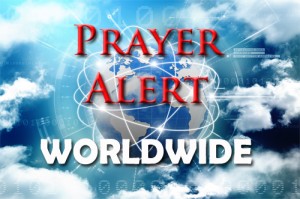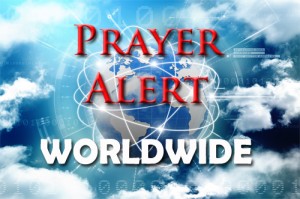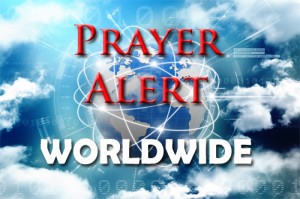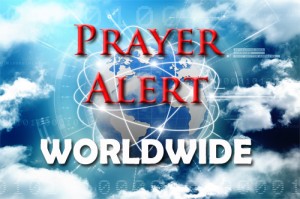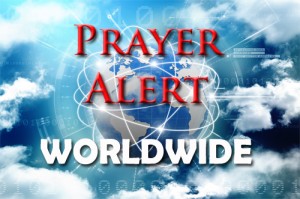
David Fletcher
David Fletcher is Prayer Alert’s Editor.
He is part of a voluntary team who research, proof-read and publish Prayer Alert each week.
If you would like to make a donation towards our running costs, please click here.
Prime Minister David Cameron has said it is ‘ludicrous’ that a college Christian Union could be stopped from meeting under the Government's counter-extremism strategy. Responding to Christian Conservative MP Fiona Bruce during Prime Minister's Questions, Mr Cameron said people needed to exercise some common sense in making these judgements. Mrs Bruce raised the issue after reports suggested an unnamed college Christian union had been stopped from meeting because of concerns that it might be breaching Prevent guidelines. This legislation was put together to stop children being influenced by extremists. Prevent is one part of the Government's initiative for countering extremism; it defines extremism, amongst other things, as ‘vocal or active opposition to different faiths and beliefs’. Mrs Bruce said that next week the annual National Parliamentary Prayer Breakfast will host 600 community and faith leaders, as well as over a hundred MPs; yet a Christian Union is banned from holding prayer and Bible study meetings.
On 4 June Ukraine’s security service said that a French citizen detained in late May on the border with Poland had been planning attacks in France to coincide with the Euro 2016 football championship. The unnamed 25-year-old had been arrested with an arsenal of weapons and explosives including rocket launchers and Kalashnikov assault rifles in his vehicle. Authorities said the man had made contact with armed groups in Ukraine with the aim of buying weapons and explosives. A Paris police raid on his home uncovered ingredients for homemade explosives. The United States warned its citizens of the possibility of further attacks in Europe, saying targets could include Euro 2016 (which opens in France today). Gun attacks, remotely detonated bombs, and even drones carrying explosives and chemical weapons are just a few of the terrorist threats French authorities are preparing for. See also:
In Italy, the very birthplace of Roman Catholicism, a bill that contradicts the teaching of the Bible has been overwhelmingly approved by lawmakers, allowing the civil union of same-sex couples amid widespread strong objections, especially from the church. By 372 votes to 51, with 99 abstentions, the bill passed the strict scrutiny. It is now up to President Sergio Mattarella to decide which side he should choose - the Bible that says marriage is only between a man and a woman, or the bill that accords homosexuals that same right. The bill's approval by Italy's Chamber of Deputies was unexpected, and drew outrage from most Italians who thought their leaders were conservative. Its passage left homosexuals with one last step for victory against the Roman Catholic Church - President Pattarella's support or veto.
In Syria last month IS came under intense pressure from the US-led coalition, Kurdish forces, Syrian government troops and allies, the Iraqi army, and shelling from Turkey. The tide is turning against the brutal organisation, and its territorial control is shrinking. Pray for the cities recaptured from IS, asking God for righteous leaders. Pray also for an ultimate peace deal, particularly with the geo-political interests of countries like Turkey, Saudi Arabia, Iran, and Russia. Meanwhile refugees continue to flee the five-year-old conflict, with no prospect of returning home in the near future. Pray for their safety, and for international solidarity to meet all their needs. Finally, the battle for Aleppo continues. Fifteen people were killed and dozens wounded in a series of airstrikes with three medical facilities hit in the space of three hours on Thursday. See:
The island of Cyprus is occupied mainly by Greeks in the south and Turks in the north. One of the biggest stumbling blocks to any kind of north / south reunion is that Greek houses and land in the north have been occupied by Turks for nearly fifty years; churches have been pillaged or destroyed, with no one to look after them. Now, with three exceptions, the remaining Orthodox churches in the north will only be allowed to have religious ceremonies once a year. Speaking to a Turkish Cypriot newspaper, the minister responsible for this new policy said they were restricting ceremonies rather than forbidding them. One reason for this decision is the large numbers of people crossing the border from south to north to attend services in the churches where they used to worship. The division between the two parts of Cyprus is one of the most politically contentious anywhere in the world, dating back to 1974. See also
Christians in Kano, northern Nigeria, expected widespread violence following the killing of a Christian woman last week, but Sunday services passed peacefully. Bridget Patience Agbahime, 74, originally from the southern state of Imo, was ambushed by a mob for allegedly blaspheming against Islam’s prophet. Her husband, the pastor of Deeper Life Bible Church, was with her, but prompt police intervention saved his life. Mrs Agbahime was a quiet woman who traded in plastic wares, known to respect others; it is doubtful that she could have made any statement of blasphemy. The killing has provoked widespread social media outrage, with calls for the perpetrators to be brought to justice. One Christian group said, ‘Our religious leaders must come out and preach the true tenets of religion, because this violent arrogance is getting too much.’ Christians fear more activism from radical Muslims during Ramadan, traditionally a time of terror and suicide bombings.
Two Palestinian gunmen dressed in suits opened fire at passers-by near the Benedict restaurant at the Sarona Market food and retail centre on Wednesday night. Police have captured the attackers, both from the same Hebron family. Following the shooting, and after security consultations overseen by Prime Minister Benjamin Netanyahu, the military rescinded 83,000 permits issued to Palestinians from the West Bank to visit relatives in Israel during Ramadan. Such measures in the past have led to increased tension with the Palestinians. After the Tel Aviv attack, in which four Israelis were killed and six wounded, fireworks were set off in the West Bank and people sang, chanted and waved flags. Hamas called it ‘the first prophecy of Ramadan’ and said the location of the attack, across the road from Israel's fortified Defence Ministry, indicated that the uprising continues. During recent waves of violence, Israel has criticised Palestinian factions for inciting attacks and not doing enough to quell them.
In May it was reported that Pastor Han Chung-Ryeol, 49, was brutally murdered on April 30, in Changbai, China. He pastored a Three-Self Church near the North Korean border, and helped countless North Koreans come to know Christ. He leaves behind a wife, a son and a daughter. He is believed to have been killed by North Koreans, who probably returned home after the attack. In February, their government issued an order for Pastor Han to be kidnapped, brought to North Korea and interrogated. Despite the threat, Pastor Han continued his work. Since planting his church in 1993, he had helped orphans, sex-trafficked women, soldiers and the famine-starved, among others. North Koreans often said they could ‘see his heart,’ which helped them trust him as he nurtured them spiritually. Ask God to replace this lovely man with thousands more to carry on the work he and others are doing for North Korean refugees.
Many Christians will be praying for Muslims, using the Prayercast Ramadan Challenge as a resource. Muslims’ pursuit of God is in vain without Jesus Christ. The spiritual condition of Muslims in Niger is dry. We can pray for focused efforts to evangelise those under the age of fifteen (half the population); pray for speed and accuracy for those translating Scriptures for barely reached people groups, and for a visible Christian presence in their societies. Pray for peace among struggling believers who feel isolated. Niger was under military rule for thirty-one years; violent coups and bloody political infighting have finally unfolded into a fledgling democracy, but slavery is still practised in isolated areas of the country. Children are trafficked for labour in gold mines, sexual exploitation, and begging. Women are abducted and sold and young boys are kidnapped for work in stone quarries. A land dispute with Libya remains unresolved and triggers spasmodic acts of violence.
One in seven people do not have the full Bible available in their native language. But there are many Christians whose mission it is to change that statistic by 2025. For example, United Bible Societies recently brought together 450 worldwide Christian leaders in Philadelphia for their world assembly, which occurs once every six years. American Bible Society members hosted the event during that organisation's 200th year. The assembly included representatives from 147 Bible societies working in more than 200 countries and territories. ‘We saw the Holy Spirit at work in so many ways, especially through patterns of praise, unity, generosity and urgency toward the singular mission and shared vision of the Bible,’ said American Bible Society's managing director of communications. He said that various Bible translation organisations have agreed to form new partnerships, and believes that they will make great strides in the next ten years in translating and distributing at least some portions of scripture to the 1,800 people groups still waiting.

